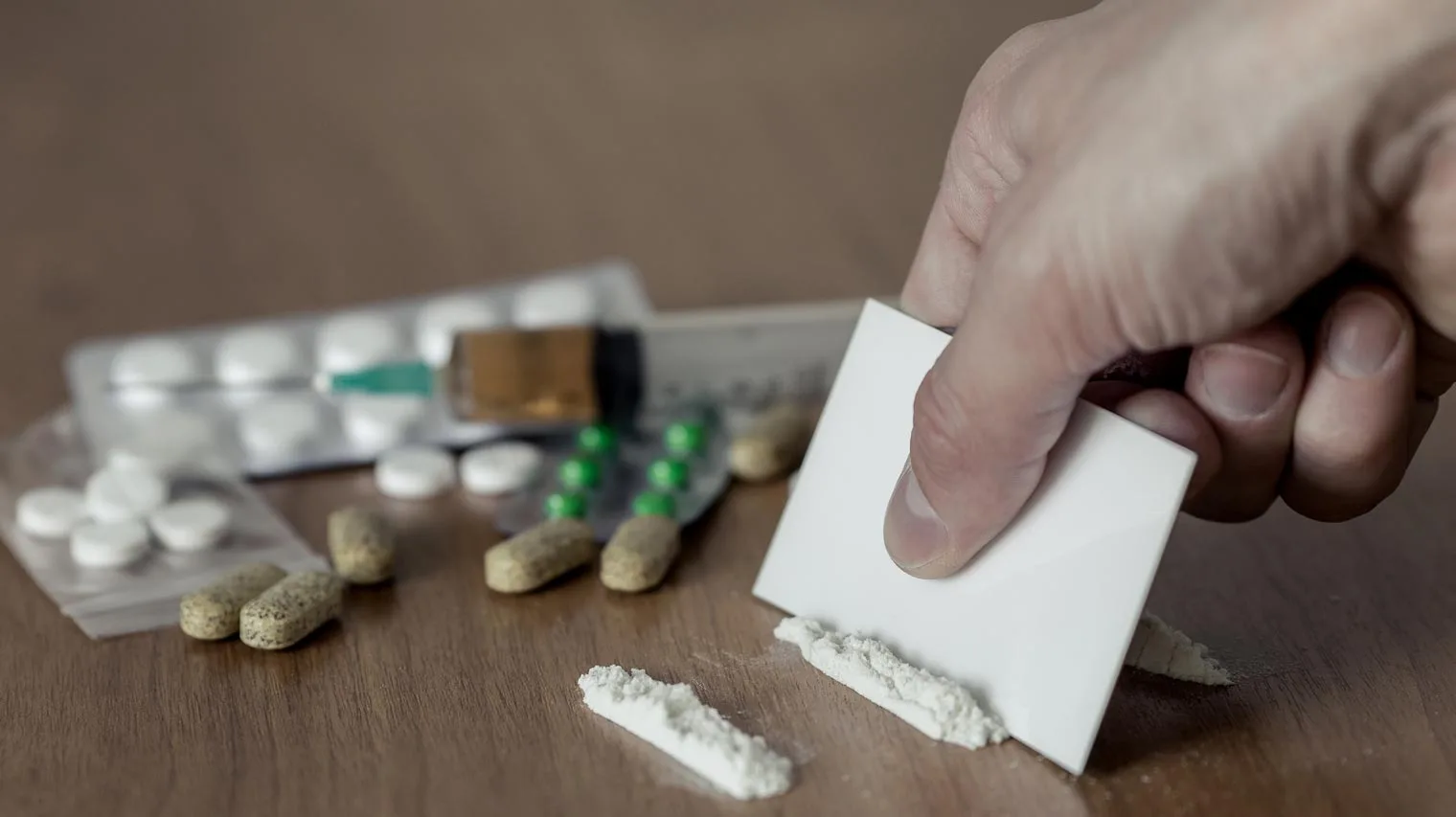Is Cocaine a Stimulant or Depressant?
Uncovering How Cocaine Acts in the Nervous System
When it comes to drugs, understanding the effects they have on the body is essential in order to make informed decisions. Cocaine is a powerful drug that can cause a wide range of physiological and psychological effects. But is cocaine a stimulant or depressant?
The Drug Enforcement Administration (DEA) classifies cocaine as a stimulant and a schedule II drug under the Controlled Substances Act. It is a powerful drug and should be used with caution. Those who use cocaine should be aware of the potential risks associated with its use, as well as the potential for addiction.
If you or someone you know is struggling with cocaine abuse, it is important to seek professional help. Keep reading to learn more about the dangers of stimulant drugs like cocaine, and how the Icarus Behavioral Health team can help you or a loved one overcome drug addiction today!
The Difference Between Stimulants and Depressants

The human body is naturally wired with a delicate balance of chemicals and hormones, which can be easily disrupted by the use of certain substances. Stimulants and depressants are two types of drugs that can have a powerful effect on the central nervous system (CNS) and body, but can have very different effects.
It is important to understand the difference between the two in order to make informed decisions about their use. Both depressant and stimulant abuse can have detrimental effects for the user, especially if these drugs are taken illicitly.
Stimulants are drugs that increase the activity of the brain and body, resulting in increased alertness and energy. Examples of stimulants include caffeine, nicotine, cocaine and amphetamines, and can increase focus and alertness.
Prescription stimulants like certain amphetamines can be used to treat hyperactive disorders like ADHD. However, they can also cause feelings of anxiety and paranoia, as well as decreased appetite and disrupted sleep patterns.
Depressant drugs, on the other hand, are drugs that reduce the activity of the brain and body, resulting in feelings of relaxation and sedation. Examples of depressants include alcohol, barbiturates and benzodiazepines.
These drugs can reduce anxiety and induce feelings of calmness. However, depressant abuse can also lead to disorientation, confusion, impaired judgment and even coma. They can also lead to physical dependence with long-term substance abuse.
In short, stimulants can make a person more alert and energetic, while depressants can make a person more relaxed and sedated. The effects of each type of drug can be beneficial or harmful, depending on the circumstance. It is important to use caution with either type of drug use, as both can have serious side effects.
24 Hour Cocaine Addiction Hotline – Call Now!
What Makes Cocaine a Stimulant Drug?
Cocaine is often referred to as a “party drug” because of its ability to give users a feeling of euphoria and alertness. Cocaine is one of the most addictive drugs in the world, and its effects can be both short-term and long-term.
Cocaine works by increasing the levels of dopamine in the brain. Dopamine is a neurotransmitter, or chemical messenger, that is responsible for the feeling of pleasure and reward. When this street drug is taken, it binds to dopamine receptors and prevents the dopamine from being recycled back into the brain.
This results in a buildup of dopamine in the brain which leads to a feeling of intense pleasure and alertness. Additional effects can range from an elevated mood and increased energy levels to heightened concentration. Cocaine can also have adverse effects, increasing the user’s heart rate and blood pressure, which can have serious health consequences if taken in high doses.
It is important to remember that cocaine is an illegal and dangerous drug, and its use can have serious health consequences. If you or someone you know is struggling with cocaine addiction, it is important to seek professional help. With the right treatment and support, it is possible to overcome cocaine addiction and lead a healthier, drug-free life.
Cocaine vs Crack Cocaine

There is a common misconception that cocaine and crack cocaine are the exact same drug, but there are some important differences between them that are worth understanding. Both are highly addictive and can cause serious health problems and even death, so it is important to understand the differences between the two.
Cocaine and crack cocaine both come from the same source, the leaves of the coca plant native to South America, and can have many of the same effects. Cocaine is generally found in a fine white powder form and is usually snorted or injected. It is a stimulant drug that produces feelings of euphoria and alertness in users.
However, the effects of cocaine last only a few minutes and can quickly lead to a crash in energy levels. Crack cocaine, on the other hand, is a form of cocaine that has been processed so that it can be smoked.
It is much more potent than cocaine and produces more intense and immediate effects. The effects of crack cocaine can last anywhere from five to fifteen minutes. Crack cocaine is also much more addictive than cocaine, and the withdrawal symptoms experienced when trying to quit can be more intense.
In terms of pricing, crack cocaine is generally much cheaper than cocaine, making it more accessible to those with limited financial resources. This has resulted in a higher rate of crack cocaine use in areas with high levels of poverty. Crack cocaine also produces a greater risk of overdose, as the high is more intense and can last for a shorter period of time.
When it comes to health risks, both cocaine and crack cocaine can have serious consequences. They can both lead to heart problems, strokes, and even death. Additionally, both drugs can lead to addiction and can cause serious mental health issues.
Confidential Cocaine Use Assessment – Call Now!
Why is Cocaine So Addictive?
Cocaine is one of the most notorious and addictive drugs in the world. This highly addictive drug is known for its intensely pleasurable effects, but also for its potentially deadly consequences. So why is cocaine so addictive? The answer is complex, but it has largely to do with the way the drug interacts with the brain.
When a person uses cocaine, the drug triggers a surge of dopamine in the brain, leading to intense feelings of euphoria. This flood of dopamine is what makes cocaine so addictive, as the brain is essentially “tricked” into thinking it is experiencing pleasure beyond what is normal.
The effects of cocaine are short-lived, but the brain remembers how good it felt and craves it again and again. To get the same feeling of euphoria, the person must use an increasing amount of the drug, leading to a cycle of addiction. Other factors that can increase the risk of cocaine addiction include genetics, mental health, and environment.
It is important to remember that help is available and addiction is treatable. With the right professional medical advice and support, it is possible to break the cycle of addiction and reclaim your life.
The Dangers of Abusing Cocaine

The dangers of abusing cocaine are well-documented and widely known. This powerful stimulant drug can have serious long-term effects on both mental and physical health, and its use can lead to addiction and even death.
Once in the body, cocaine produces an intense feeling of euphoria and increased energy. However, the effects of cocaine wear off quickly, and users often take increasingly larger doses in an attempt to recapture the original “high.” This pattern of binging can lead to serious physical and psychological consequences.
There is also the fact that many street dealers will mix cocaine with other substances in order to increase their profits, such as talcum powder or inositol. This puts consumers at a higher risk of experiencing a fatal overdose, as they are unaware of what they are consuming. This is particularly dangerous when it comes to contamination with fentanyl.
Physical Side Effects
Physically, cocaine can cause a number of health issues. The drug can damage the heart, leading to increased risk of stroke and heart attacks. It can also damage the lungs, leading to difficulty breathing and increased risk of respiratory illnesses. Other long-term risks of cocaine use include:
- Constricted blood vessels
- Collapsed veins
- Soft tissue infections
- Severe bowel decay
- Contracting HIV, hepatitis C, and other bloodborne diseases
- Damaged nerve cells
Psychological Side Effects
Cocaine can also cause changes in brain chemistry, leading to anxiety, depression, sleep problems, violent behavior, and even psychosis, amongst a variety of other symptoms. Cocaine can also increase the risk of suicide, especially in users with a pre-existing mental illness
Abusing cocaine can also lead to addiction. Long-term cocaine users often become dependent on the drug, and experience strong cravings and a decreased ability to control their use. This can lead to financial, social, and legal problems, as users often resort to criminal activities in order to obtain the drug.
Cocaine Overdose Symptoms
When taking too high a dose or mixing cocaine with other drugs, the side effects of cocaine use can be deadly. Overdoses can lead to respiratory failure, severe paranoia, increased body temperature, heart attack, cardiac arrest, and even death.
If you suspect that you or someone else may be experiencing an overdose, it is important to seek emergency medical help immediately, as this can become life-threatening.
What are the Signs of Cocaine Addiction?

Cocaine addiction is a serious and life-threatening condition that can have severe consequences if left untreated. It is important to understand the signs of cocaine addiction in order to recognize it in yourself or a loved one.
The first sign of cocaine addiction is a change in behavior. If you are addicted to cocaine, you may become secretive, withdrawn, and display mood swings. You may also become more aggressive or agitated.
Another sign of cocaine addiction is changes in physical appearance. If you are regularly using cocaine you may lose or gain weight, have dilated pupils, and have an overall unhealthy look. You may also have a chronically runny nose or red eyes due to snorting cocaine.
Cocaine addiction can also lead to changes in sleeping habits. Someone who is addicted to cocaine may stay up for days, or sleep more than usual. You may also have difficulty sleeping or staying asleep.
Money Problems and Other Signs of Coke Becoming a Problem
Financial trouble and debts may also be a sign of cocaine abuse and addiction. Someone who is addicted to cocaine may start to spend a lot of money on the drug, or be unable to pay bills on time. You may also take out loans or borrow/steal money from family and friends to pay for your drug habit.
Chronic abuse of this drug can also lead to a decline in performance at work or school. Someone who is using cocaine may have difficulty concentrating or completing tasks. You may also have a decrease in attendance or be late for work or school more often.
Finally, if you are struggling with cocaine addiction, you may notice changes in your social habits. You might start to socialize less with family and friends, and hang out more with people who use or supply your cocaine.
If you or a loved one is displaying any of the signs above, then it is time to get help. The Icarus Behavioral Health treatment facilities can help you or your loved one overcome addiction and achieve long-term sobriety. You can call now to get more information on how Icarus can help.
Seeking Cocaine Addiction Treatment at Icarus

Icarus Behavioral Health in Nevada provides a comprehensive mental health and addiction treatment center that offers a wide range of services to help our clients recover from substance use disorders and mental illness.
The Icarus team is dedicated to providing evidence-based, individualized care to those who are experiencing behavioral health issues. We understand the treatment process can be challenging, which is why we provide a variety of services, including behavioral therapies, drug and alcohol treatment, prevention and education services, and more.
Our center’s team of experienced therapists and licensed medical professionals use evidenced-based therapeutic approaches to help our clients reduce their symptoms, manage their emotions, and develop healthier coping skills.
No matter what your recovery needs are, our centers’ team of professionals will work with you to create a personalized plan that is capable of addressing all of your concerns and helping you become a happier, healthier, and successfully sober you.
Immediate Help For Cocaine Use – Reach out Now!
Recover from All Forms of Drug Abuse at Icarus in Nevada!
If you or a loved one is struggling with cocaine abuse, or crack addiction, the Icarus team is here to help. Our state-of-the-art facilities offer a variety of addiction treatment services and recovery resources that can help you achieve long-lasting sobriety.
Reach out to one of our dedicated Icarus Behavioral Health Nevada representatives now to discuss your treatment options, and start your recovery process with newfound hope today!













